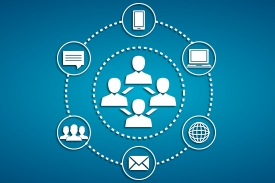In today’s fast-paced and demanding work environments, employee stress has become a prevalent issue affecting productivity, morale, and overall well-being. Recognizing the importance of promoting a healthy work-life balance, businesses are increasingly implementing modern techniques to help employees destress and recharge. From mindfulness practices to flexible work arrangements.
Here are some effective strategies for empowering employees to manage stress in the workplace.
Mindfulness and Meditation:
Mindfulness and meditation techniques have gained widespread popularity as effective tools for stress reduction. Many businesses now offer mindfulness training sessions or provide access to meditation apps and resources. Encouraging employees to take short breaks throughout the day to practice mindfulness can help them cultivate awareness, reduce anxiety, and enhance their ability to focus and concentrate.
Flexible Work Arrangements:
Flexibility in work arrangements, such as remote work options, flexible hours, or compressed workweeks, can greatly alleviate stress for employees. Providing the freedom to tailor their work schedules to better suit their personal lives enables employees to better manage their time, reduce commuting stress, and achieve a healthier work-life balance.
Employee Assistance Programs (EAPs):
Employee Assistance Programs offer confidential counseling and support services to help employees cope with personal and work-related stressors. These programs often provide access to mental health professionals, resources for financial planning, legal assistance, and other services to address a wide range of employee needs. By promoting mental health awareness and destigmatizing seeking help, EAPs can create a supportive work environment where employees feel valued and cared for.
Wellness Initiatives:
Wellness initiatives encompass a variety of activities and programs designed to promote physical, mental, and emotional well-being among employees. This can include onsite fitness classes, wellness challenges, healthy eating initiatives, and access to resources such as Employee Assistance Programs and mental health support services. By investing in employee wellness, businesses demonstrate their commitment to fostering a healthy and supportive work environment.
Encouraging Work-Life Balance:
Encouraging a healthy work-life balance is essential for preventing burnout and promoting overall well-being. Managers can lead by example by respecting boundaries around working hours, encouraging employees to take breaks and vacations, and setting realistic expectations for workload and deadlines. Additionally, implementing policies such as unlimited paid time off or offering sabbaticals can provide employees with the flexibility they need to recharge and rejuvenate.
Stress Management Workshops and Training:
Providing employees with access to stress management workshops and training programs can equip them with practical tools and strategies for coping with stress effectively. These workshops may cover topics such as time management, prioritization, assertive communication, and relaxation techniques. By investing in employee development and skill-building, businesses empower employees to take proactive steps towards managing their stress levels.
Creating a Supportive Work Culture:
Creating a supportive work culture where employees feel valued, respected, and appreciated is essential for promoting employee well-being. This can be achieved through regular communication, open-door policies, recognition programs, and opportunities for professional growth and advancement. By fostering a sense of belonging and community, businesses can help employees feel more resilient in the face of stressors and challenges.






